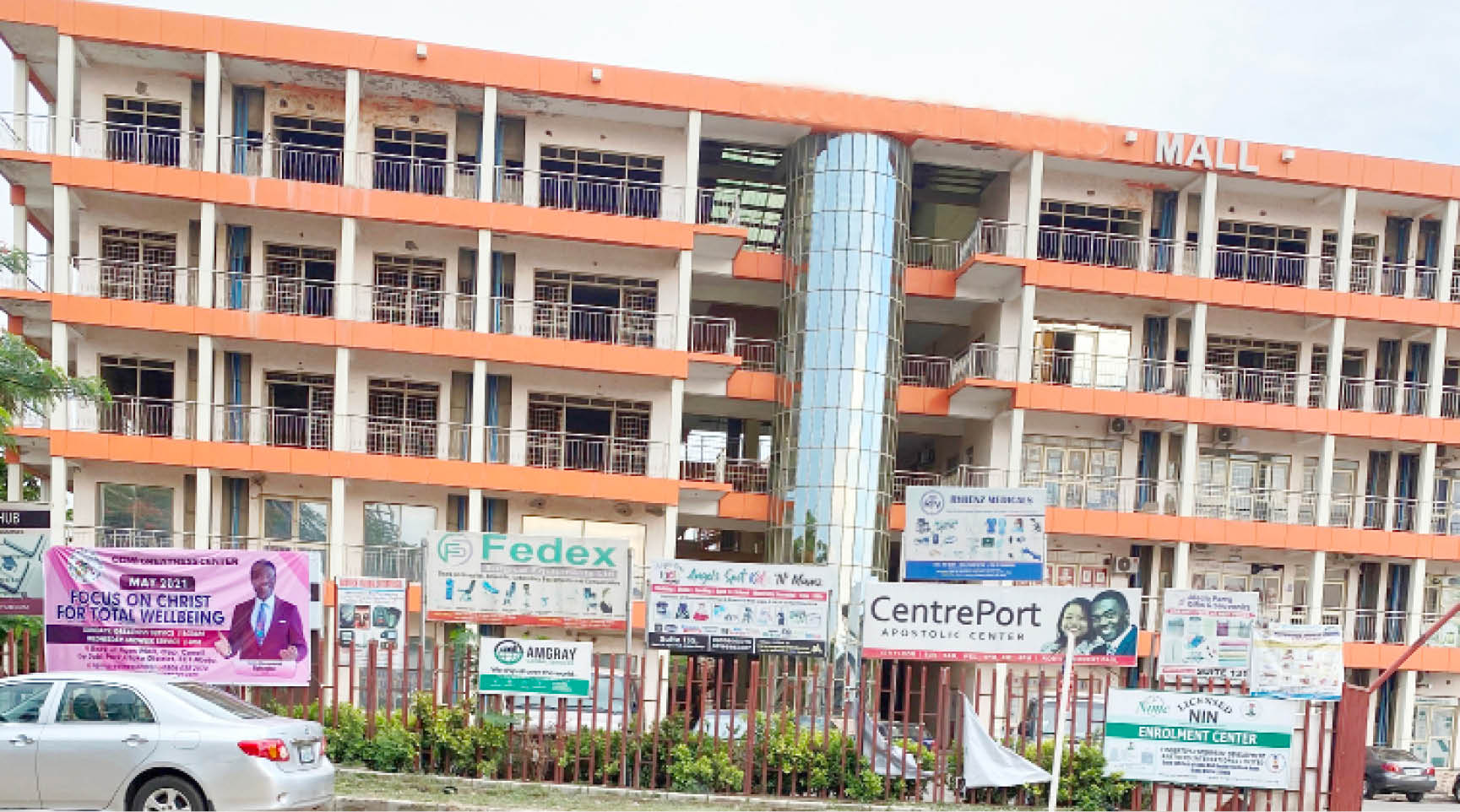A drive around the city of Abuja, the nation’s capital city, will reveal many shopping plazas and malls that have remained unoccupied for many years after their completion.
Since the recession of 2016, most businesses are finding it difficult to break even, let alone pay or renew their rent, which in most cases, are in hundreds of thousands or millions of naira.
Many attribute the empty plazas and malls to two major factors: cost of rent and low patronage.
In Kubwa, Gwarimpaa and Apo, renting a shop costs between N500,000 and N600,000, whereas it costs between N1m to N2m in Wuse II, Central Business District (CBD), Wuse zones, Garki II, Garki areas and other highbrow areas of the city.
Daily Trust gathered that renting a square metre at some Abuja malls is close to N100,000 a year, which has left many businesses affected by recession and COVID-19 unable to pay.
Mr Chukwudi Nnamdi who occupies one of the malls said, “If people can make even a little above the expenses on rent and overhead, they would stay on and keep on, but when all you make goes back into rent for the next year, then there is no point renting.”
In his view, Khalifa Baba-Ahmed said, “The cost of renting a shop for a year in Abuja could be the total revenue a small start-up generates in two to three years,” adding that it “takes above five years to break even.”
Apart from the rent, many Abuja residents like Shittu Alao believe that those who invest in building plazas and malls are losing expected revenues because of weak demand, adding that, “You see new malls and plazas because half the stores do not renew rent.”
Dr Yusuf Ibraheem, however, in his Twitter handle, wrote: “I often casually observe visitors to malls in Abuja [in an unscientific way] consumer spending. I have observed nearly 80 per cent leave with mostly bread or ice cream & less than one per cent leave with more than one bag. I always wonder how those shops pay rent if people are too poor to spend.”
On his part, Ogbuabo Emmanuel Ogbonna, said, “Part of the reason for the failed mall issues in Nigeria is that we are used to the open market where we can bargain for goods and services. In the mall, people feel that things are expensive, especially because the prices are fixed, and you can’t bargain.”
At the Rock of Ages Mall in Utako, Jabi District, many shops, particularly those on the 2second, third and fourth, are empty.
A shop owner at the Rock of Ages, Emeka Emmanuel, said business boomed depending on how the business was known.
He said since the mall was not located in a residential area, shop owners had to depend on long time customers who patronised them often and possibly gave referral of their services, adding that, “If we are not making sales, nobody will stay to pay the huge amount of rent we pay.”
On what he thinks is the reason for some shops being empty, Emmanuel said, “The most suitable places for people to get their businesses done have been rented out already. The first floor and second are more open to the public and accessible. Some customers will feel that since they can get what they need close, why stress themselves to the upper floors.”
On his part, Mr TM Daniel said, “The malls are expensive compared to the purchasing power of tenants’ customers. If traffic is low and purchasing power of the middle class is under attack, consumers go for bargain hunting. Therefore, the mall business model collapses in a poor economy,” warning that, “Be careful with investment in malls.”
An Abuja resident said, “Just yesterday evening, I was talking about this with my partner when I saw half the stores at Apo Mall empty, and you see different retailers occupying the same shop every other month. When the middle class is weak, consumer spending is just basics – bread and paracetamol.”
For another Abuja resident, he said, “I look at the mall being built…and I just smile…”

 Join Daily Trust WhatsApp Community For Quick Access To News and Happenings Around You.
Join Daily Trust WhatsApp Community For Quick Access To News and Happenings Around You.


